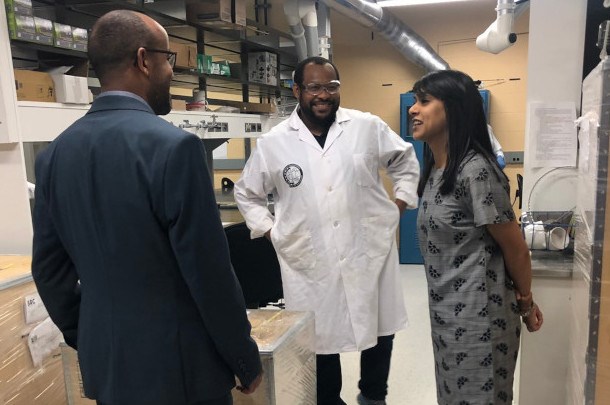Ottawa is sending $800,000 in research dollars to the University of Waterloo to convert wood waste materials and recycled plastics into a thin wood-plastic composite material for use in automotive applications.
In a news release, the federal government is framing this as the development of a transformational and environmentally sustainable bio-product that will provide "new market opportunities for Canada's forest sector."
The money comes from Natural Resources Canada's Clean Growth Program, which invests in clean-tech research and development projects in the energy, mining and forest sectors.
Want to read more stories about business in the North? Subscribe to our newsletter.
MP Bardish Chagger delivered the good news in her home riding of Waterloo on Aug. 30.
"By making significant investments in Canada's forest sector and working with innovative institutions like the University of Waterloo, we can reduce greenhouse gas emissions and create new opportunities for Canadian businesses, Chagger said in a statement.
Tizazu Mekonnen, an associate professor of chemical engineering at Waterloo, was grateful for the funding.
"In a world where the dynamic challenges of the plastic industry associated with severe environmental pollution, resource scarcity or depletion concerns and the health and safety risk of some plastics and additives are testing the earth's limits and our standards for human well-being, it is crucial that government supports research and development efforts in a way that provides sustainable solutions and local resource utilization and avoids health and safety, and pollution concerns."




